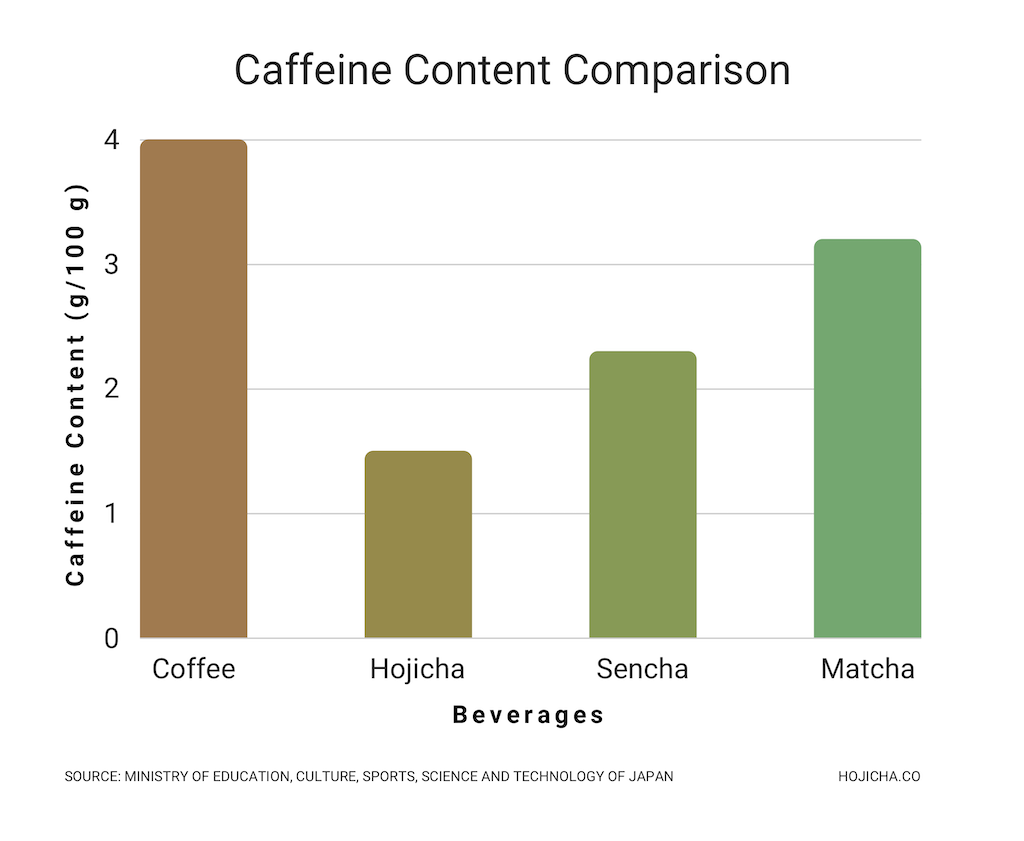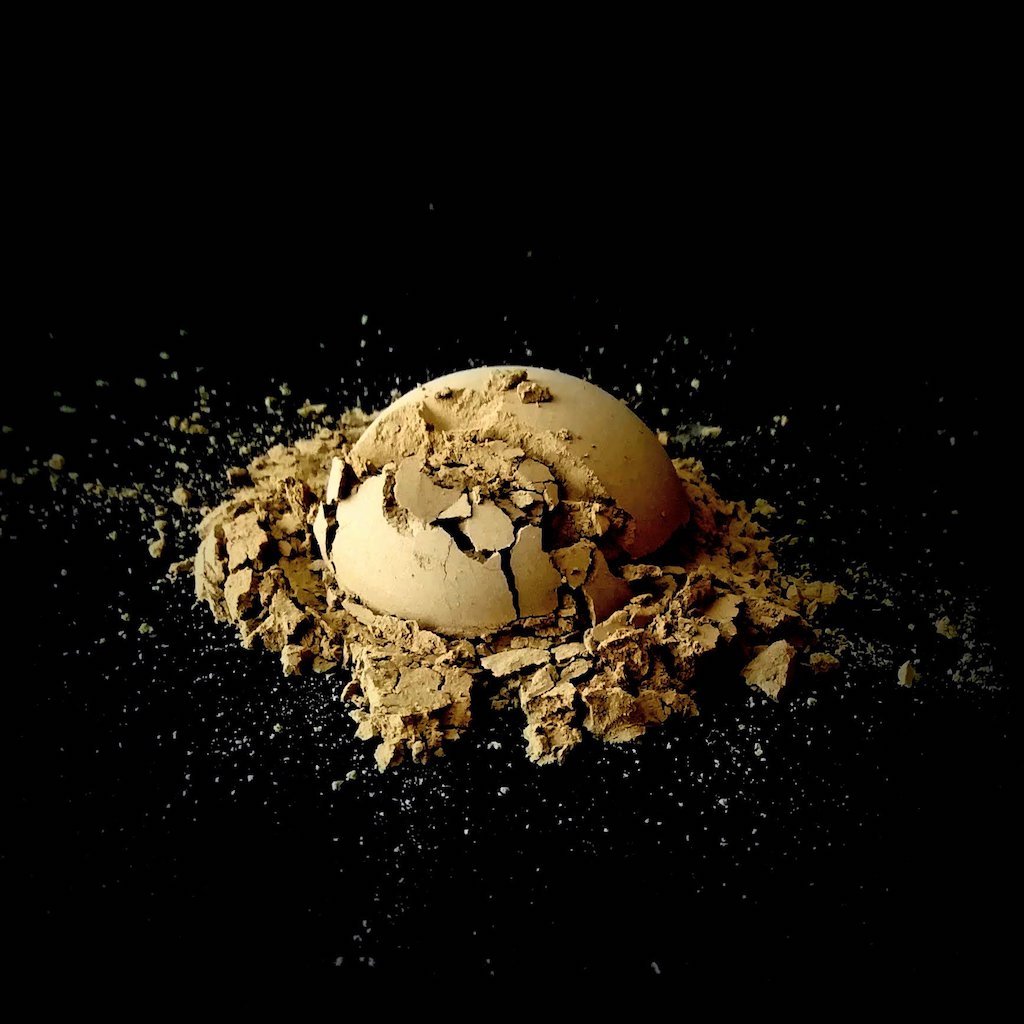Caffeine in Hojicha
Hojicha is a roasted green tea originating in Kyoto, Japan. Since the naturally sweet tea is low in caffeine, it is typically enjoyed in the evening.
The low caffeine content of hojicha is often attributed to the roasting process which reaches 200°C, as caffeine sublimes near its 178°C boiling point.[1] But even before hojicha is roasted in high temperatures, the determining factor of caffeine levels can be traced back to the type of tea leaves used. Hojicha made from younger sencha harvest leaves has slightly more caffeine than hojicha made from mature bancha harvest leaves.[2] While hojicha made from kukicha (twig tea) has the lowest amount of caffeine.[3]
A standard serving size of one cup of hojicha (250 ml) contains about 7.7 mg of caffeine. As hojicha is low in caffeine, it doesn’t cause the anxiety and jitteriness that coffee drinkers experience. Furthermore, hojicha calms the body with help from its L-Theanine and pyrazines.

More alarming is that drinks containing high caffeine are also associated with increased blood pressure and risk of heart disease. Those seeking to protect their heart and improve their health can benefit from drinking hojicha.
Since hojicha is low in caffeine, it can be sipped anytime. This makes hojicha the perfect alternative to coffee for those seeking a warm and toasty drink in the afternoon and evening.
Hojicha is prepared by steeping the leaves in 80°C (175°F) water for as little as 30 seconds. The rich and naturally sweet flavor of hojicha is deepest when infused in hot water and slightly cooled before drinking. As hojicha’s signature earthy aroma fills your room, you’ll be tempted to steep it again for another hot tea, latte, or even to be enjoyed cold later on.
References:
[1] O'Neil, M.J. (ed.). The Merck Index - An Encyclopedia of Chemicals, Drugs, and Biologicals. Cambridge, UK: Royal Society of Chemistry, 2013., p. 289
[2] Yuko Yoshida, Masaaki Kiso. National Food Research Institute. Contents of Individual Tea Catechins and Caffeine in Japanese Green Tea https://www.jstage.jst.go.jp/article/cha1953/1996/83/1996_83_21/_pdf
[3] Yuan-Hua Li, Wei Gu, Sheng Ye. Expression and location of caffeine synthase in tea plants http://agris.fao.org/agris-search/search.do?recordID=US201300807741
Information on this site is designed for educational purposes only. You should not rely on this information as a substitute for professional medical advice, diagnosis, or treatment. If you have any concerns or questions about your health, you should talk to a doctor.

